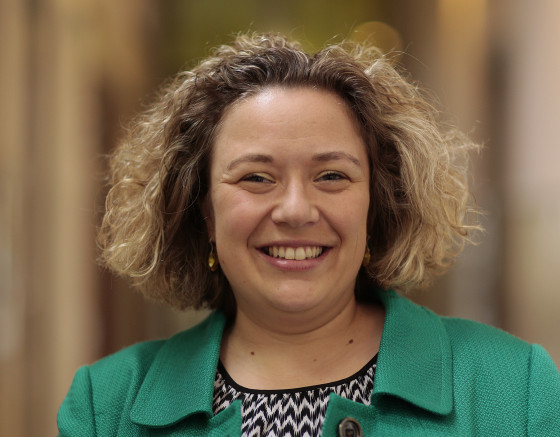‘I made most progress in learning Dutch at the local rowing club’

 Poffertjes addict Heidi Maurer is Austrian and is assistant professor of European studies at Maastricht University. She has been in the Netherlands since 2007 and says career opportunities will dictate how long she stays.
Poffertjes addict Heidi Maurer is Austrian and is assistant professor of European studies at Maastricht University. She has been in the Netherlands since 2007 and says career opportunities will dictate how long she stays.
How did you end up in the Netherlands?
I came to Maastricht on a nine-month academic fellowship with the Austrian academic exchange service to work at the European Institute for Public Administration (EIPA) in Maastricht. During my stay I got to know a few colleagues working at university who encouraged me to apply for teaching assistant job there, once my fellowship approached its end. I got the job, and since then I enjoy the international environment at Maastricht University and the atmosphere in Maastricht.
How do you describe yourself – an expat, lovepat, immigrant, international, etc?
Over the past few years I think I’ve grown into an ‘international’ person. This is partly due to my work which allows me to travel and work with many different people within and outside Europe. This was really something I never planned – it just happened and I enjoy it incredibly.
How long do you plan to stay?
Not sure, and this is going to depend mainly on future career opportunities. For now I enjoy my life in Maastricht, and I would not mind staying here in the future, but it will depend on the job.
Do you speak Dutch and how did you learn?
Een beetje. I followed a course when I started at university to learn the basics, but it was hard to practice as our work language is English. Using every possible opportunity in everyday social interaction certainly helped, as well as watching Dutch TV and reading newspapers to pick up vocabulary. However, I made the most progress in speaking when I joined a local rowing club.
What’s your favourite Dutch food?
Definitely poffertjes, because there is nothing more uplifting on a bad day.
What do you miss about back home?
In terms of food, dark bread – although with many organic shops and local bakeries there is a great choice in Maastricht. Coming from Vienna I missed the coffee house culture and ‘ good’ coffee, but also in these respects Maastricht has developed very positively during the last few years – there are now various wonderful new places: great to sit, work, eat, drink good coffee.
How Dutch have you become?
My Austrian colleagues often remark that I have become way more direct in workplace communication. In Austria you small talk and often talk around the issue, but you seldom say directly what you want. I’ve certainly been socialised into this in the Netherlands.
What’s your top tourist tip?
Visit the Keukenhof tulip gardens. This is not necessarily an innovative suggestion but it is really nicely done and great for getting into spring mood. And visitors love it too.
Tell us something surprising you’ve found out about the Netherlands.
Biking is normal, and you can transport anything on your bike. I was also surprised that not only youngsters but everyone cycles, even omas and opas.
If you had just 24 hours left in the Netherlands, what would you do?
Go for a long walk along the Maas, have coffee at Slavante at the Sint Pietersberg. Then walk back into town for a relaxing lunch, watch people and later on have a biertje on one of the many cafe terraces.
Thank you for donating to DutchNews.nl.
We could not provide the Dutch News service, and keep it free of charge, without the generous support of our readers. Your donations allow us to report on issues you tell us matter, and provide you with a summary of the most important Dutch news each day.
Make a donation